What could a child possibly do to deserve abuse? And why should an adult carry the weight of such trauma for life?
How often do we walk through life, oblivious to the silent battles others are fighting, mistaking ignorance for bliss? Yet ignorance is far from bliss—it is a barrier that blinds us to the suffering that quietly exists all around. The effects of Child Sexual Abuse (CSA) are not confined to a single moment in time; they ripple across a survivor’s entire life. Acknowledging these injustices and standing with those who have endured the unimaginable is more than just important—it is a shared responsibility we all carry.
Despite this, a common myth persists: “All CSA survivors show visible trauma.” This misconception often minimizes the gravity of their experiences and dismisses the invisible scars they carry.
“Trauma isn’t always visible, but it leaves marks deeper than what the eyes can see.”
These words echo in the story of a 30-year-old CSA survivor who courageously shared her journey:
“For years, I told myself I was fine because I didn’t cry or break down like people thought I should. But inside, I was battling nightmares, shame, and a deep mistrust of others. I didn’t know how to explain the hollow ache that followed me everywhere. People said I looked ‘normal,’ but I felt anything but that.”
This story reminds us that while some scars are visible, others are hidden deep within—and both can be equally debilitating.
Now, let’s delve into the lasting effects of Child Sexual Abuse and renew our commitment to supporting survivors in their healing journey.
Wounds That Don’t Bleed: Navigating the Mental Struggles of Survivors
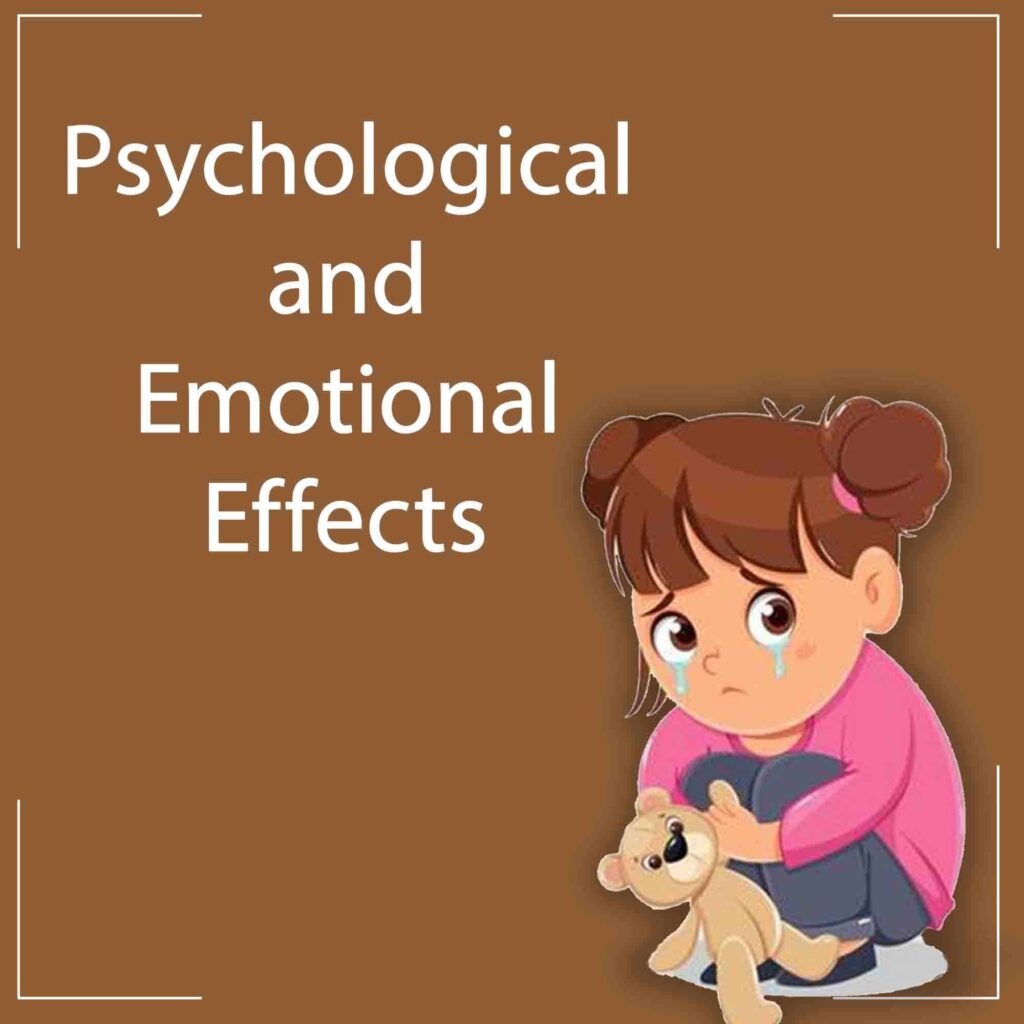
The psychological and emotional consequences of Child Sexual Abuse can be profound, with effects that often linger into adulthood. Survivors face a range of mental health challenges that can disrupt their personal relationships, professional lives, and overall well-being.
- DEPRESSION AND ANXIETY–
One of the most common manifestations is depression and anxiety. Studies show that nearly 57% of individuals who experienced child sexual exploitation suffer from depression, and many develop anxiety disorders, such as generalized anxiety disorder and PTSD.
- DISSOCIATION AND MEMORY ISSUES–
In addition to trauma-related disorders, survivors often struggle with dissociation, which can lead to difficulties in memory and self-awareness. While dissociation may serve as a coping mechanism, it can prevent survivors from fully processing their traumatic experiences.
- SELF-ESTEEM AND BODY IMAGE CHALLENGES–
Low self-esteem and poor body image are also prevalent, contributing to feelings of shame and guilt, which can affect confidence and personal relationships. In extreme cases, self-harm and suicidal ideation are common, with adult survivors in treatment experiencing self-harm rates as high as 49%.
- GENDER DIFFERENCES–
These mental health challenges manifest differently based on gender. Females are more likely to internalize their struggles through depression and anxiety, while males may externalize their emotions through aggression.
Recognizing the complex psychological and emotional effects of child sexual abuse is vital in providing appropriate support and fostering awareness, enabling survivors to reclaim their sense of safety and self-worth.
When Love Feels Unsafe: How CSA Affects Relationships
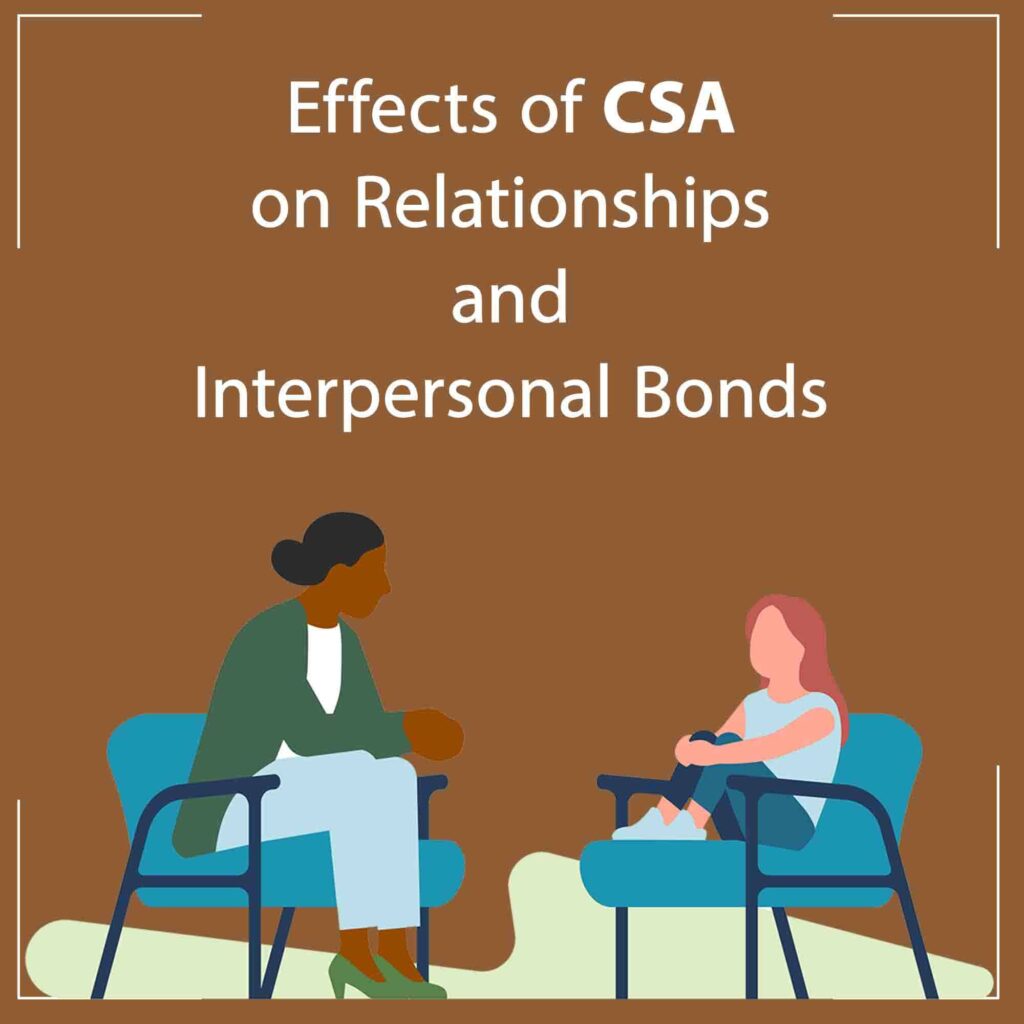
CSA deeply affects survivors’ capacity to build and sustain healthy relationships. The trauma endured during early years often leads to difficulties with trust, intimacy, and emotional connection—essential elements in nurturing strong, supportive bonds.
Research indicates that only 17% of CSA survivors exhibit a secure attachment style, underscoring the long-lasting impact of CSA on relational well-being.
- Trust Issues and Attachment Styles
Survivors frequently find it difficult to form secure attachments, leading to heightened vigilance in relationships and persistent doubt about others’ intentions. - Fear of Intimacy and Sexual Dysfunction
Many survivors experience an intense fear of intimacy or sexual dysfunction, stemming from past trauma and unresolved emotional wounds. This can hinder emotional closeness and create barriers to fulfilling relationships. - Difficulties in Maintaining Relationships
Challenges such as low self-esteem, communication difficulties, and fear of vulnerability can make it difficult for survivors to form and sustain meaningful relationships, often leading to isolation.
Creating safe spaces and encouraging open conversations can help survivors rebuild trust and rediscover meaningful connections.
The Body Remembers: Physical Consequences of CSA
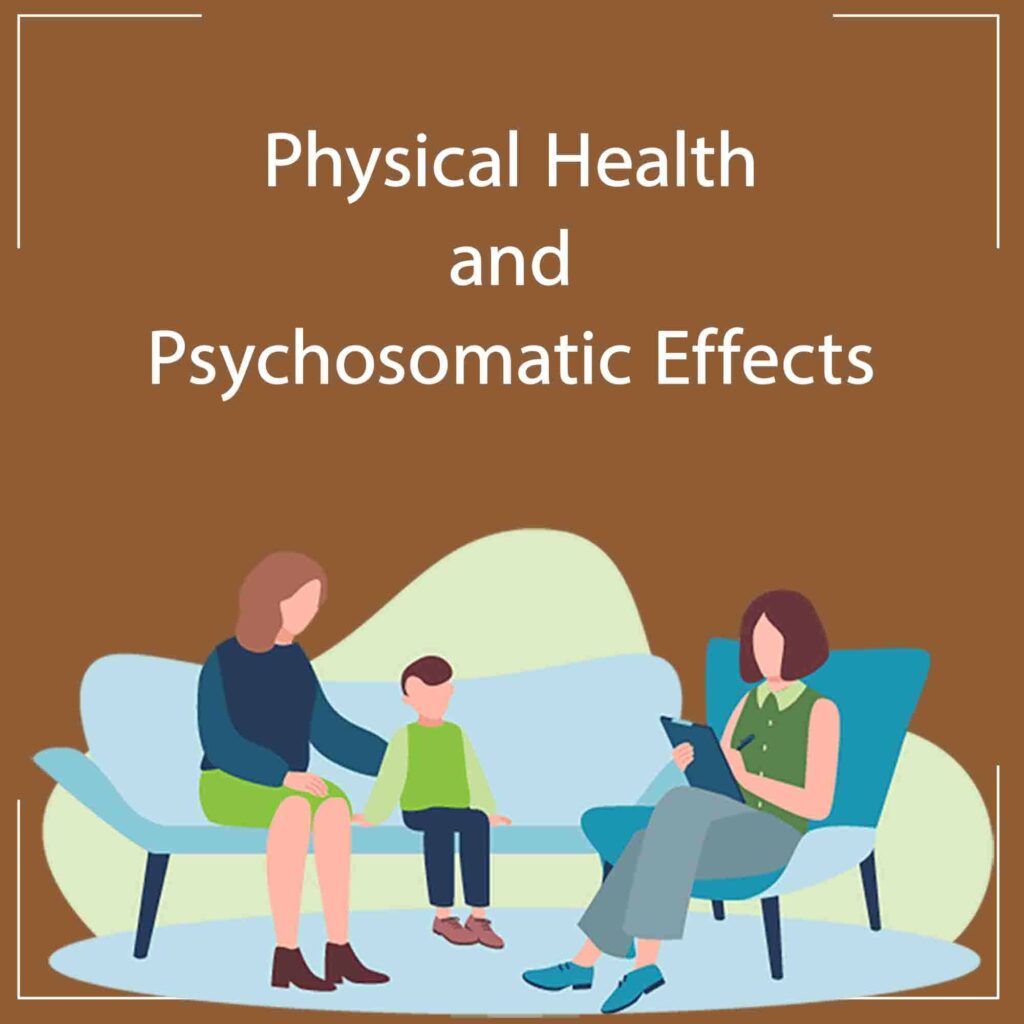
The effects of child sexual abuse extend beyond the mind and emotions, often manifesting as physical and psychosomatic symptoms linked to trauma. Survivors may experience lasting health issues that require comprehensive care and understanding.
Physical and Psychosomatic Health Effects:
- Substance Abuse
Many survivors turn to alcohol or drugs as a coping mechanism for their trauma. Over time, this can lead to addiction and severe physical health problems, such as liver damage, respiratory issues, and a weakened immune system. - Self-Harm and Chronic Pain
Survivors may engage in self-harm or self-mutilation as a way to externalize internal pain. Chronic pain, including headaches, joint pain, or back pain, is also a common long-term symptom. - Neurological Changes
CSA can lead to changes in brain function, resulting in heightened stress responses and difficulty regulating emotions. These neurological shifts can manifest physically, affecting coordination, memory, and sensory perception. - Unhealthy Lifestyle Choices and Promiscuity
Survivors may adopt unhealthy habits, such as smoking, poor diet, or lack of exercise, increasing their risk of chronic illnesses. Additionally, promiscuity may result from struggles with boundaries or self-esteem, potentially leading to sexually transmitted infections or other health complications. - Sleep Disorders
Survivors frequently experience sleep disorders like insomnia and nightmares are also prevalent, further affecting their emotional and physical well-being. - Somatization and Medically Unexplained Symptoms
Medically unexplained symptoms, including non-epileptic seizures, chronic abdominal pain, and sensory disruptions, are common among CSA survivors. These symptoms often defy traditional medical explanations, making accurate diagnosis and treatment challenging. - Reproductive and Sexual Health Issues
Survivors may face sexual dysfunction, anxiety, and fear of intimacy. Acute injuries and infections from CSA can also lead to long-term reproductive health complications.
These health outcomes underline the importance of early intervention, comprehensive care, and trauma-informed support to mitigate the physical consequences of CSA and help survivors achieve long-term well-being.
Beyond the Mind: How Trauma Translates into Illness
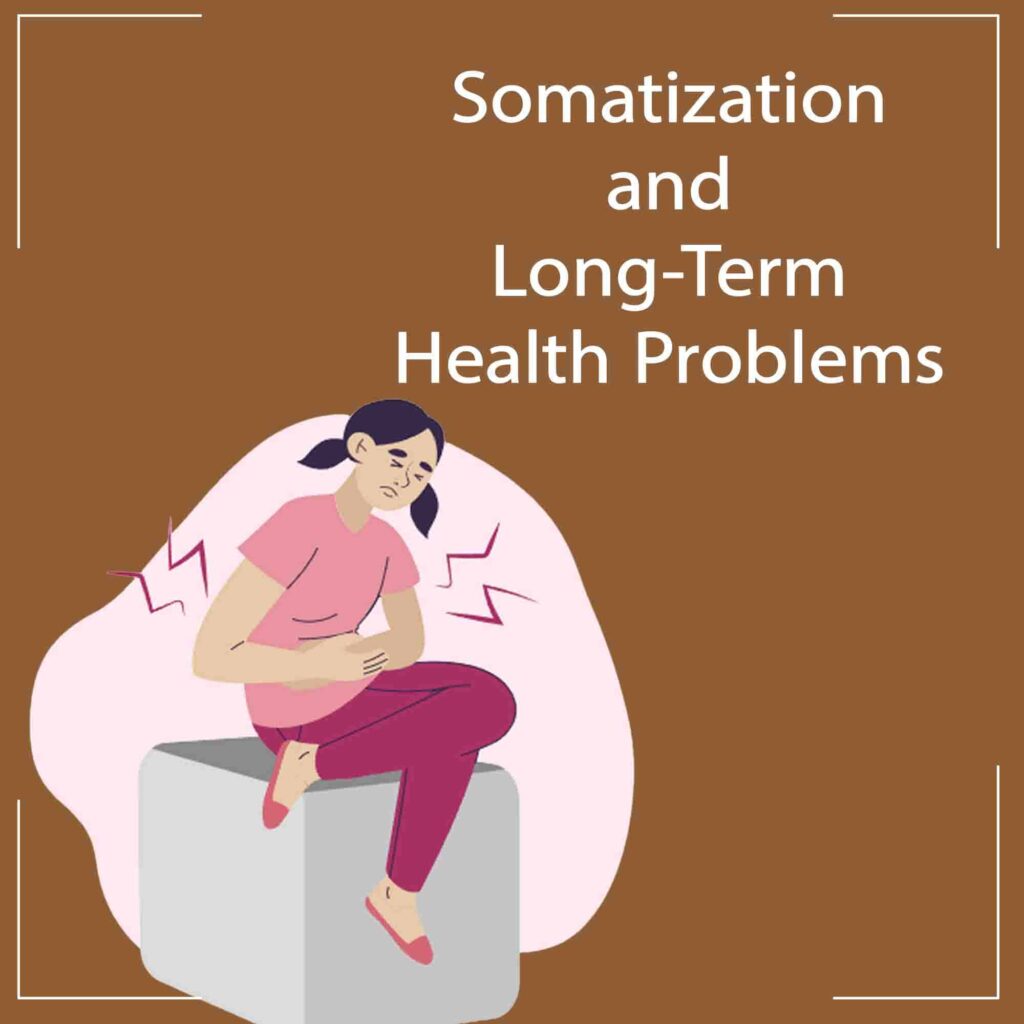
CSA survivors often experience somatization—where emotional distress takes a physical form, complicating diagnosis and treatment.
- Somatization: Emotional Distress as Physical Symptoms
Somatization refers to the process where emotional distress manifests as physical symptoms, a common experience among CSA survivors. This phenomenon can result in chronic pain, gastrointestinal disorders, and cardiovascular issues, reflecting the deep connection between trauma and physical health. - Acute Health Risks
For survivors of penetrative abuse, the immediate physical consequences may include:
- Genital injuries: Acute trauma to the genital area.
- Increased STI risk: A heightened susceptibility to sexually transmitted infections.
These injuries often require urgent medical attention and can have long-term implications for reproductive and overall health.
- Chronic Illnesses and Long-Term Impact
One in four CSA survivors reports a long-term illness or disability, compared to one in five in the general population. Common health issues include obesity, cardiovascular problems, and complications during childbirth. Survivors also frequently experience medically unexplained symptoms like chronic pain and non-epileptic seizures, complicating their care. - Healthcare Utilisation
Survivors of CSA tend to require more frequent medical care:
- Doctor and hospital visits: Research shows that survivors report 20% more medical consultations compared to those without CSA experiences.
- Medically unexplained symptoms: Many survivors experience symptoms such as chronic pain and non-epileptic seizures, which can complicate diagnosis and treatment plans.
By acknowledging these health challenges and responding with empathy and expertise, caregivers and medical professionals can better support survivors on their journey toward healing and recovery.
A Life Shattered: Understanding the Multidimensional Impact of CSA
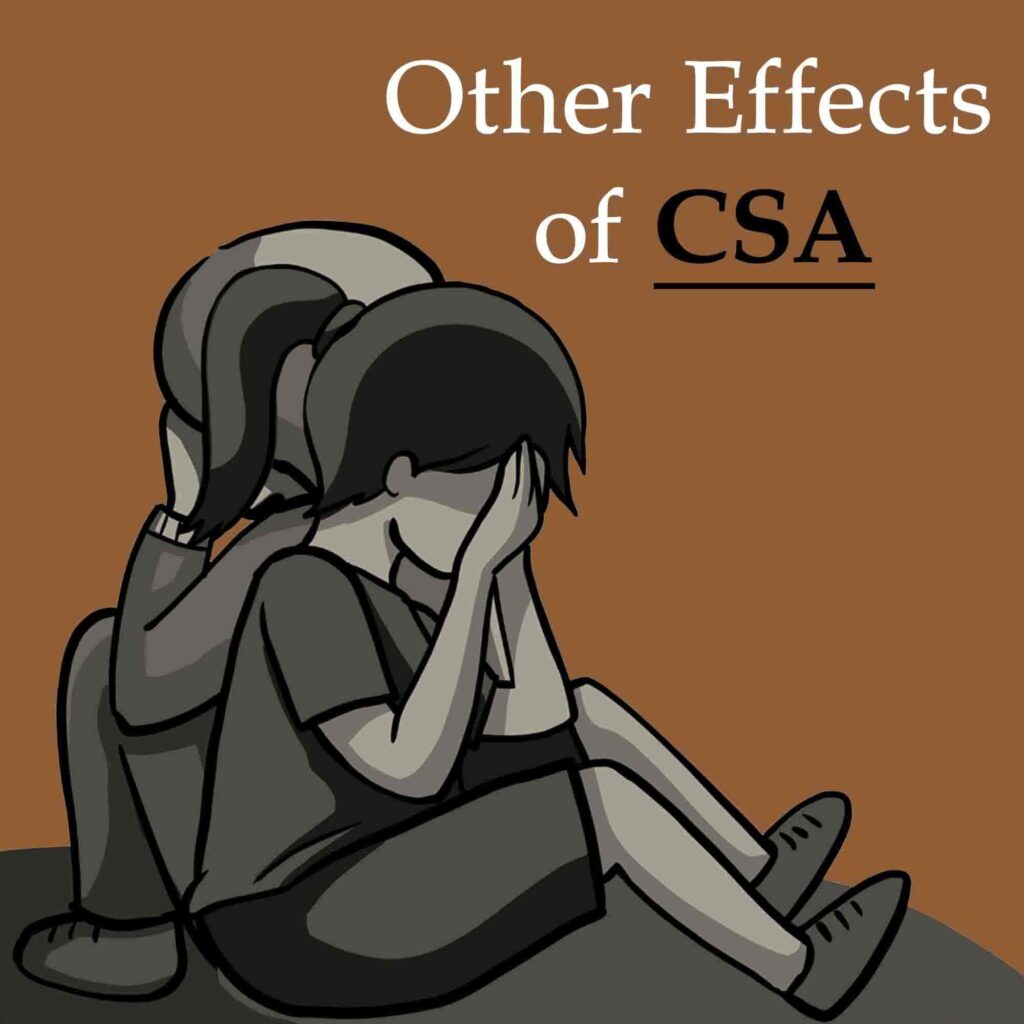
● Socio-Economic
The effects of Child Sexual Abuse extend beyond the horizon of an individual’s understanding. Poor mental or physical health along with CSA contributes to adverse socioeconomic outcomes. The effects include decreased educational engagement, unemployment, overall financial instability, and sometimes overachievement used as a coping mechanism to deal with traumatic experiences.
● Religious and Spiritual Belief
CSA survivors frequently feel abandoned or punished by a perceived cruel deity and have profound disillusionment regarding their religious and spiritual beliefs because of CSA. Institutional responses to abuse like, minimization and denial, make the survivor question their entire belief system. This spiritual devastation is often perpetrated by the individuals in positions of religious authority. While other people use faith as a coping mechanism to aid recovery.
● Vulnerability to re-victimisation
CSA survivors stay at a heightened risk for revictimization. Some of the most common emotions experienced as after effects of CSA, such as PTSD and self-blame, worsen the vulnerability of the survivor. Clubbed with other incidents, such as of physical abuse during adolescence, to which CSA victims are more prone, revictimization takes many forms. Therefore, this cycle of revictimization should be viewed as a continuous issue rather than separate isolated incidents.
● Outcomes by Life Stage and Gender
Mental health conditions affect the CSA survivors across all stages of life. While physical injuries and low educational alignment are prevalent during childhood, adulthood brings chronic health issues and interpersonal relationship challenges as an effect of CSA. Gender differences in CSA have been present but lack robustness due to a lack of data on male victims. However, variation in both genders exists in their behavioural responses, intimate relationships, reproductive experiences, etc.
A Step Forward: Supporting Survivors with Empathy and Action
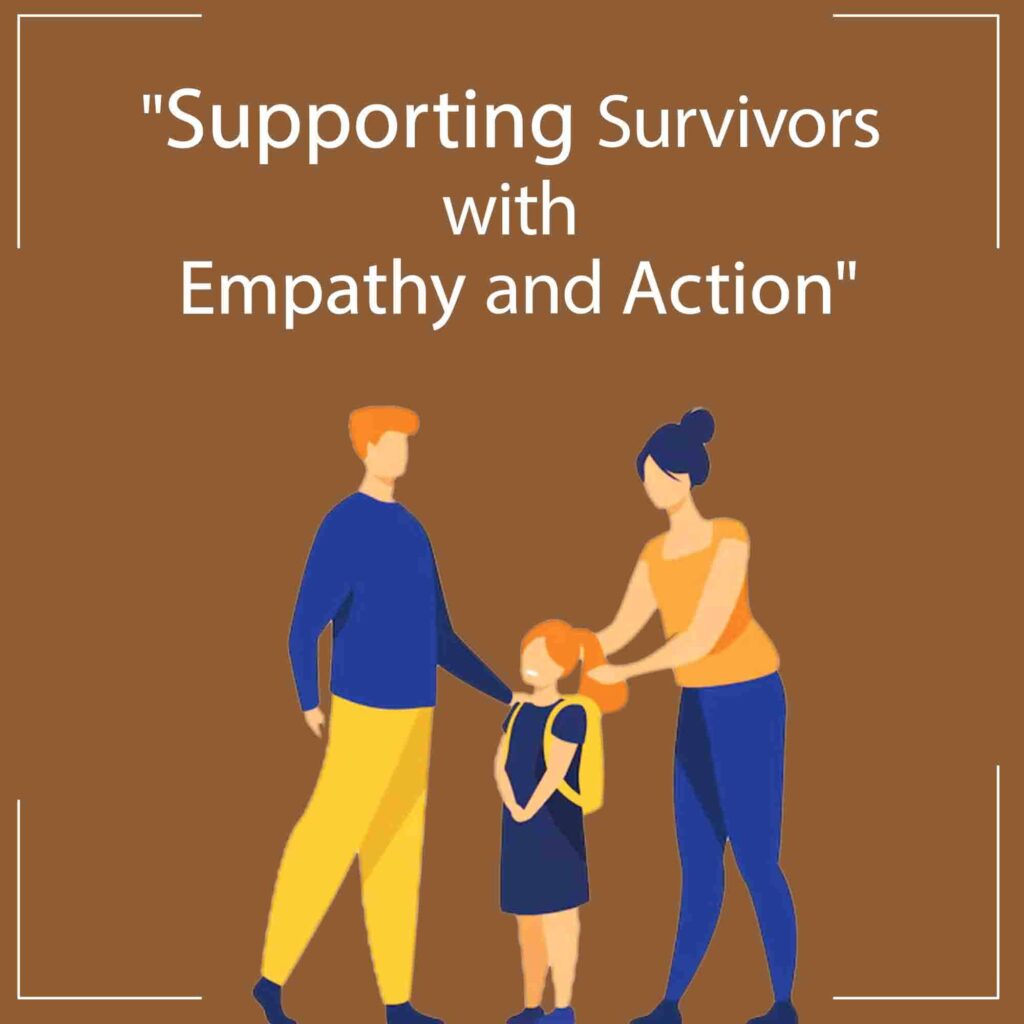
This blog sheds light on the profound effects of child sexual abuse, highlighting the challenges survivors face and calling for a more compassionate and empathetic society. But understanding the impacts is just the beginning. By acknowledging these effects, we can take meaningful steps toward supporting survivors—whether through listening, creating safe spaces, or advocating for change.
In our next blog, we’ll explore the coping mechanisms survivors adopt—both harmful and healing—while focusing on available support systems and how Bachpan Save The Innocence is actively working to create pathways toward recovery, resilience, and hope. Stay tuned to learn how you can make a difference.
